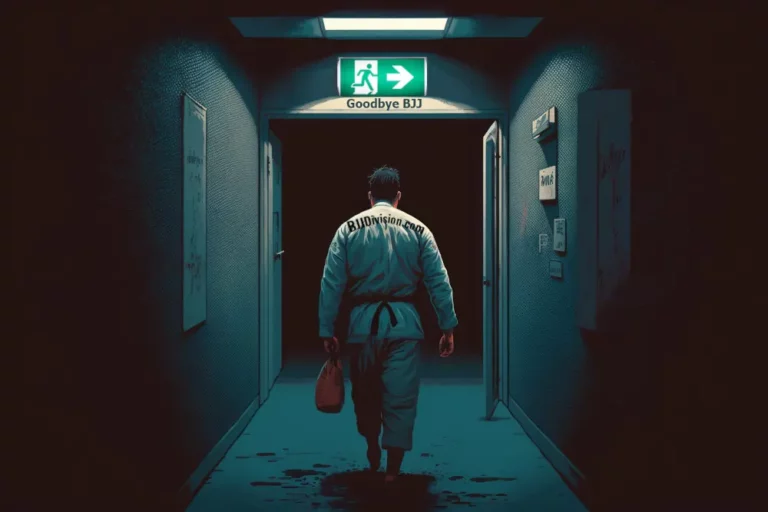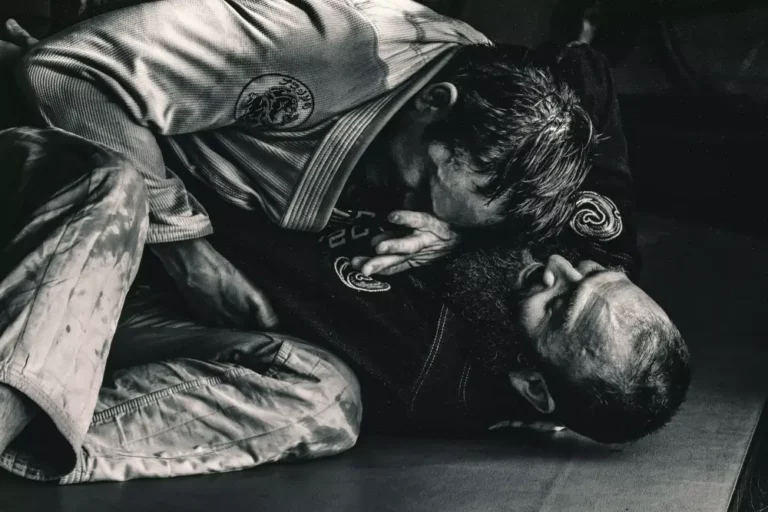BJJ Coral Belt: Complete 30+ List and Jiu Jitsu Belt Rankings

Have you ever seen a BJJ Coral Belt before?
Why is there a BJJ Coral Belt?
How many Jiu Jitsu Coral Belts are there?
Brazilian Jiu Jitsu developed from Judo and therefore uses a belt system that is fairly similar to the one used in Judo, which also has a Coral Belt. You can check out our article on Jiu Jitsu vs Judo to dive into a full comparison between the two.
There are two kinds of Jiu Jitsu Coral Belts:
The Red/Black Coral Belt is followed by the Red/White Coral Belt. They succeed the 6th Degree Black Belt and can be interpreted as 7th and 8th Degree Black Belts. Only the Red Belt, which is the highest belt in BJJ, exceeds the Coral Belts in rank. Therefore, wearing a BJJ Coral Belt is a great honor and can only be achieved after decades of training.
BJJ Coral Belt FAQ
Everything you need to know about the BJJ Coral Belt:
BJJ Coral Belt in the BJJ Ranking System
The IBJJF (International Brazilian Jiu Jitsu Federation) determines the graduation system that is used all over the world. In BJJ there are only five major belt colors for adults: white, blue, purple, brown and black. The belts are awarded in this exact order. Belts grey to green are kids’ belts and are converted to adult belts at the age of 16.
The IBJJF imposes certain minimum times at each belt before getting promoted, which can be seen at the bottom of the image. For colored belts there is also a minimum age. For example, practitioners must be at least 19 years old to earn a Black Belt.
Generally, belts prior to the Black Belt are awarded based on the skill level observed by the professor and therefore are somewhat subjective. In addition to belts, stripes on the section at the end of the belt mark the progress throughout the time at a certain belt color. Belts beyond the Black Belt are awarded based on the time the practitioner actively held the previous belt. These belts are seen as a great honor and can only be achieved at a high age after decades of training Jiu Jitsu.
On average it takes a BJJ practitioner around 11 years to earn a Black Belt. You can check out our articles on How long it takes to get a Black Belt in BJJ and How long it takes to get a Blue Belt in BJJ to dive into the statistics.
BJJ Coral Belts succeed the 6th Degree Black Belt. Therefore, it takes a minimum of 35.5 years of training Jiu Jitsu to be considered for a promotion to the Red/Black Coral Belt according to the IBJJF, while 31 years are spent at Black Belt alone. The Red/Black Coral Belt then must be worn while actively training for another 7 years to be viable for promotion to the Red/White Coral Belt.
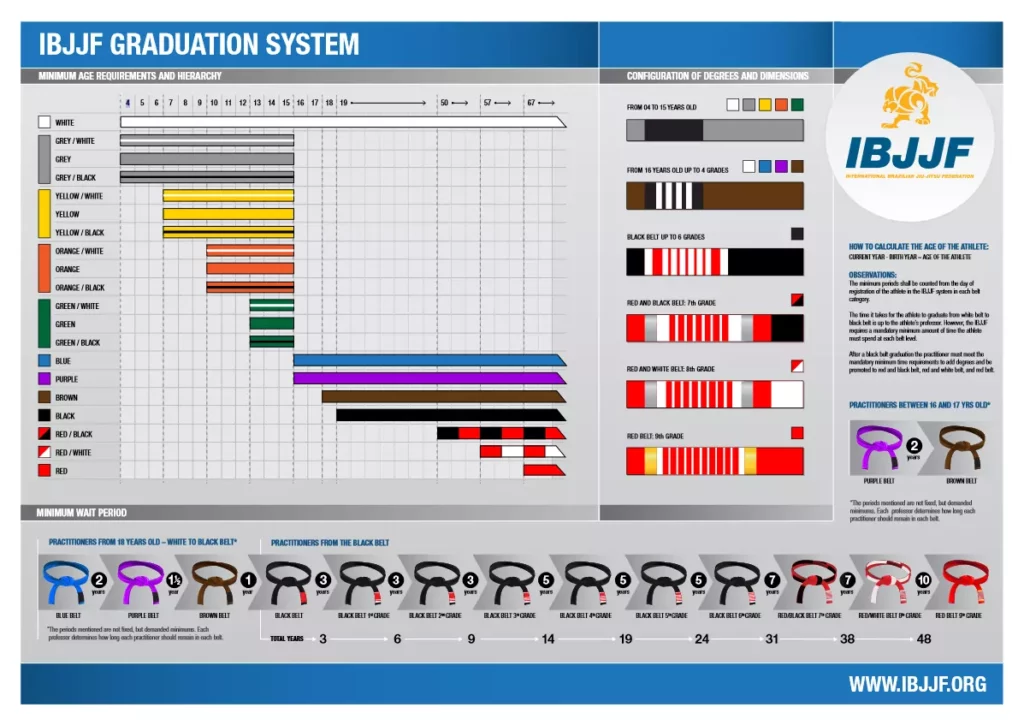
List of BJJ Coral Belts today
The following list shows most, if not all, of the BJJ Coral Belts today. It is an updated version of the list found on BJJTribes.
- Rilion Gracie
- Joe Moreira
- Sergio “Malibu” Jardim
- Carlos Gracie Junior “Carlinhos”
- Fabio Santos
- Jean Jacques Machado
- Carlos Machado
- Cosmo Dias
- Royce Gracie
- Carlos Henrique Elias “Caique”
- Paulo Caruso
- Mauricio Gomes
- Fabricio martins
- Roberto Lage
- Sergio Penha
- Crolin Gracie
- Marcio Dos Santos
- Fernando “Pinduka”
- Cassio Cardoso
- Ricardo Liborio
- Jurandir Moura
- Romero “Jacare” Cavalcanti
- Pedro Sauer
- Rigan Machado
- Sylvio Behring
- Marcio Stambowsky
- Ricardo Cavalcanti
- Crezio De Souza
- Ricardo De La Riva
- Rolker Gracie
- Carlos Rollyson
- Royler Gracie
- Fabio Gurgel
- Pascoal Duarte
- Yvone Duarte (first ever female Black Belt and Coral Belt)
- Wellington “Megaton” Dias
When reading through the names on the list, it becomes obvious that most Coral Belts today are Brazilian. This can be explained through the fact that 35 or more years ago Jiu Jitsu was most famous in Brazil. Another few decades from now there will probably be Coral Belts from all over the world on this list, which is great for the sport.
Who are the BJJ Coral Belts today? The most famous examples
Let’s review some of the most famous BJJ Coral belts today a little closer:
Royce Gracie
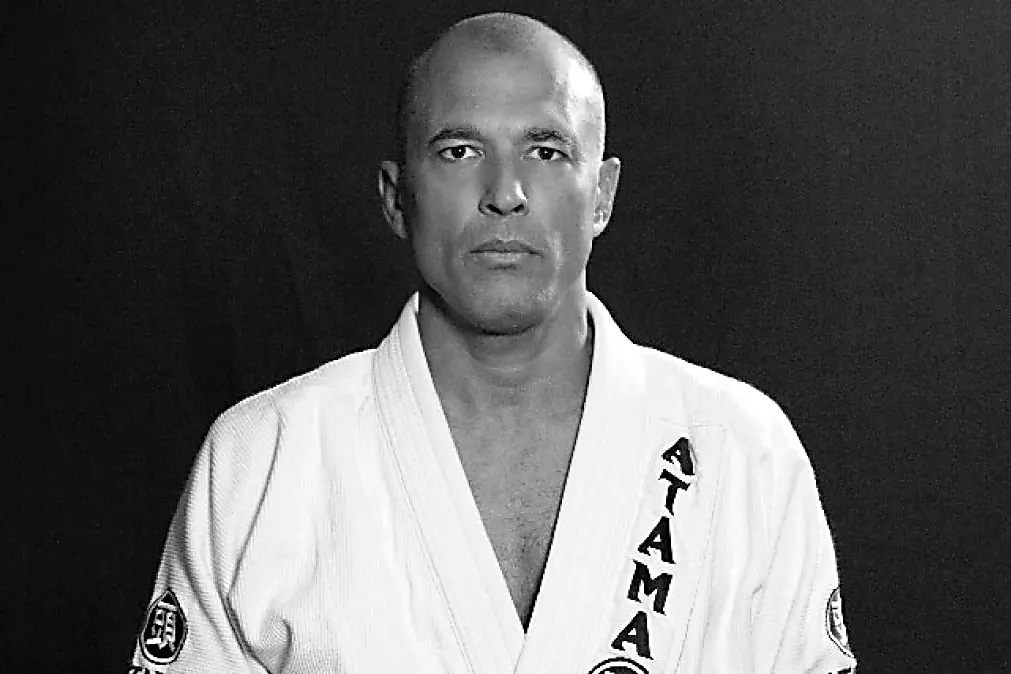
Royce Gracie is Helio Gracie’s son and originated from the following lineage: Mitsuyo Maeda > Carlos Gracie > Helio Gracie > Royce Gracie.
He is one of the most influential figures in Brazilian Jiu Jitsu as he was a serious competitor and brought Jiu Jitsu to MMA in the early 90’s when the UFC began its rise. By becoming the champion of UFC I, UFC II and UFC IV, he proved that Jiu Jitsu has its place in MMA and it has held its ground ever since.
Royler Gracie
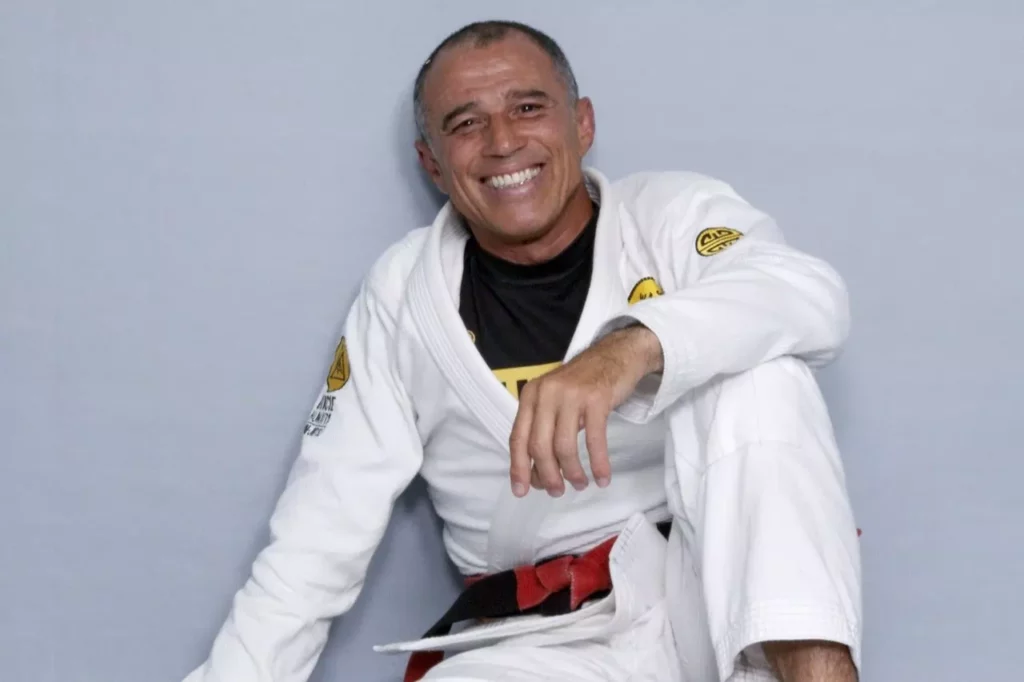
Royler Gracie is another one of Helio Gracie’s sons and originated from the same lineage as his brother Royce: Mitsuyo Maeda > Carlos Gracie > Helio Gracie > Royce Gracie.
He was seen as the “King of BJJ’s Featherweight Division” as he was the most successful competitor at the time, winning the World Championships four times in a row in the years 1996-1999 as well as several Pan American- and ADCC Championships. In the following years he went on to lead the Gracie Humaita academy in Rio de Janeiro. This school developed fighters like Wellington “Megaton Dias, who is a Coral Belt himself today.
Jean Jacques and Carlos Machado
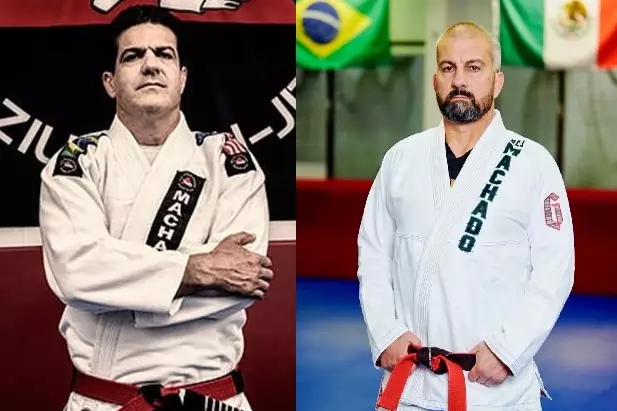
The brothers Jean Jacques and Carlos Machado originate from the following lineage: Mitsuyo Maeda > Carlos Gracie Sr. > Carlos Gracie Junior > Carlos Machado.
Jean Jacques cemented his legacy by being one of Carlos Gracie Junior’s top students and winning several big tournaments, like the ADCC World Championship in 1999. His brother Carlos also won several big tournaments in the same era.
Additionally, the Machado brothers went on to found the successful Machado Jiu Jitsu academy in the early 1990’s in the USA. This academy developed some well-known Jiu Jitsu fighters like Hollywood legend Chuck Norris, who is a Black Belt under Carlos Machado.
Yvone Duarte

Yvone Duarte is a pioneer of woman’s Jiu Jitsu. She trained under Osvaldo Alves and was the first ever woman to be promoted to the rank of Black Belt in 1990. After training for another 31 years as a Black Belt and a total training time of 43 years she was also the first woman to be promoted to the rank of Coral Belt in 2021.
On top of that, she opened the first female owned Jiu Jitsu school. She had to overcome many hurdles in the earlier years of Jiu Jitsu when women were not as accepted in the sport. Obviously, we can’t do them all justice in this article.
What percentage of BJJ practitioners have a Coral Belt in BJJ?
This question is hard to answer exactly since we would have to know the number of BJJ Coral Belts today and the number of all BJJ practitioners today.
As of 2022 there seem to be 36, maybe more, BJJ Coral Belts in the world. Keep in mind, every Red Belt also was a Coral Belt once. Beltchecker, a registry for BJJ practitioners that shows interesting statistics, has about 24.000 practitioners registered today.
Obviously, the number of practitioners is much higher than that, since only a few people register themselves online. For example, only two of the 36 Coral Belts are registered on Beltchecker. The real number of BJJ practitioners today is estimated to be about 3.000.000.
As a result, the percentage of BJJ practitioners that have been promoted to Coral Belt is 0.0026%.
The number of BJJ Red Belts is even smaller. Check out our article about the BJJ Red Belt to find out more.
Conclusion
With the belts beyond the Black Belt, it is not about skill anymore. The Coral Belt in Jiu Jitsu as well as the final Red Belt are a sign of honor and appreciation of your achievements and what you have done for the BJJ community.
Every single Coral Belt today has cemented their place in the BJJ history books and is a celebrity in the sport. If you should ever arrive at this place of honor, you will surely have devoted your whole life to the sport. So don’t strive for belts, strive for progress and mastery.



